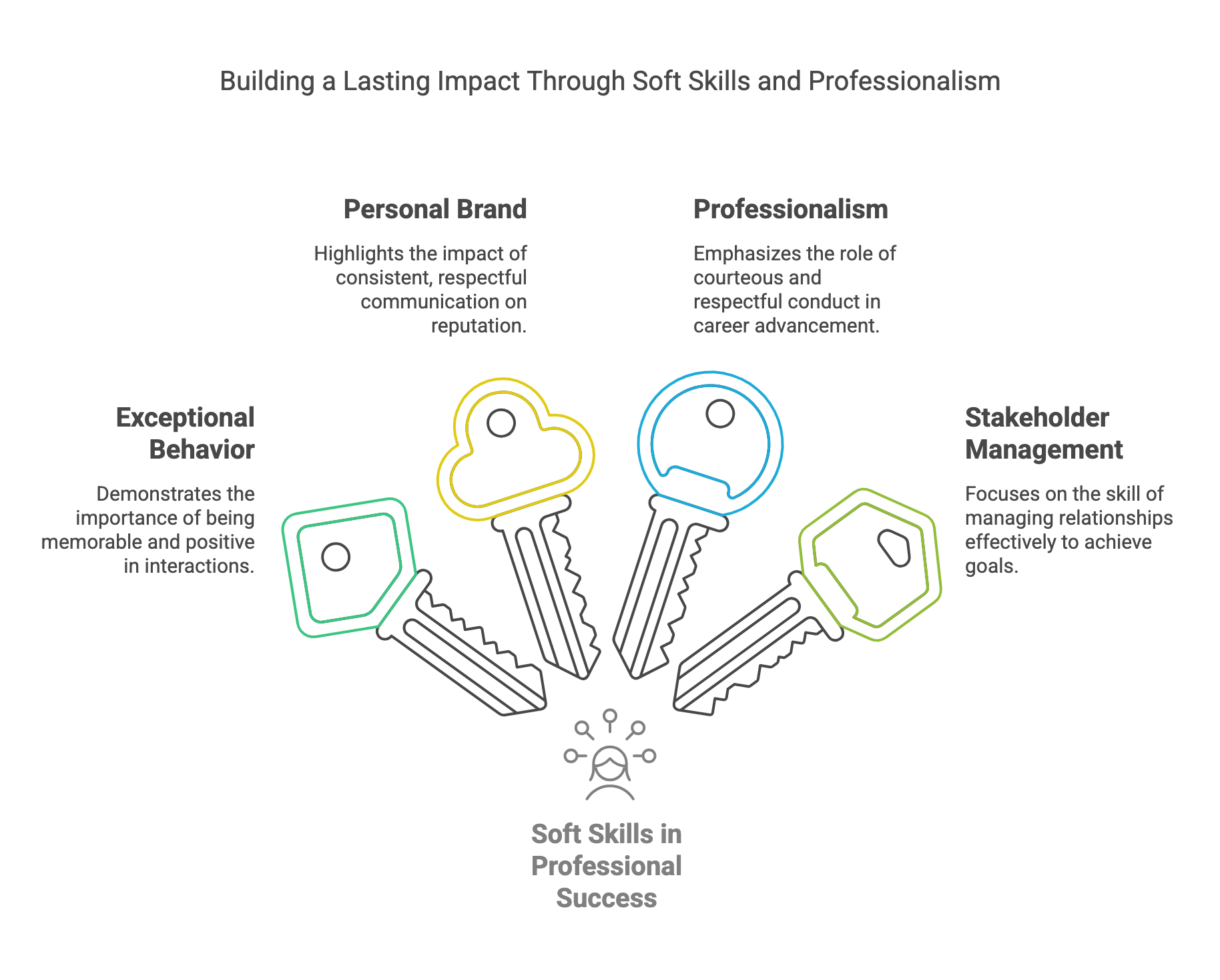Reading Controls
Customize your reading experience
Switch between light and dark themes
Adjust text size and spacing for comfort
Necessary Etiquette in Your Product Management Job Hunt
Necessary Etiquette in Your Product Management Job Hunt
In today’s hyper-connected world, etiquette is more important than ever—especially when you’re looking to break into product management or land your next PM role. Sometimes, the smallest oversight can leave a sour impression on potential employers, recruiters, and supportive community members. Here’s how to ensure your job-hunting behavior exudes professionalism and respect, whether you’re networking on WhatsApp, LinkedIn, or any other social platform.

1. Always Ask Before You Call
The Problem: Many aspiring PMs think it’s acceptable to “cold call” people for referrals or to ask questions, without getting their permission first. This can come across as rude and insensitive—everyone has busy schedules, and not everyone is comfortable with unexpected phone calls.
What To Do Instead:
- Seek Permission: A quick message asking if they are available to chat is more courteous than immediately calling or sending a voice note.
- Provide Context: Explain who you are and why you’d like to speak. People are far more receptive when they know why you’re reaching out.
- Be Flexible With Time: Offer possible times for a brief call, respecting the other person’s availability.
2. Introduce Yourself First
The Problem: Jumping straight into questions without giving any context about who you are or what you’re looking for can be off-putting. The person on the receiving end might feel they’re being used purely for information.
What To Do Instead:
- Start With a Brief Bio: Share your background, current role (if any), and what specifically prompted you to connect.
- Show Genuine Interest: Mention something about their work or background if you know it—this shows you’ve done some homework.
- Use a Polite Greeting: Even a short “Hi, [Name]!” can go a long way. Manners matter.
3. Validate Information & Never Assume
The Problem: Making assumptions can lead to misinformation and wasted effort. For example, you might assume a community admin can “guarantee” a referral or that an open role exactly matches your skill set without verifying details.
What To Do Instead:
- Ask Clarifying Questions: “Is the role still open?” “Are you comfortable referring me based on my profile?”
- Confirm the Facts: If someone shares an opportunity, politely confirm its status before proceeding.
- Stay Curious & Humble: Product management is as much about curiosity and data gathering as it is about building solutions. Demonstrate that mindset.
4. Craft Polite, Respectful Questions
The Problem: Many job seekers appear unprofessional by using lazy language—fragmented sentences, curt demands, or text-speak—when reaching out for help or asking questions.
What To Do Instead:
- Frame Your Ask Properly: Instead of “Need a referral,” try “Would you be open to referring me for the Product Manager position at your company?”
- Use Proper Sentences: Even in WhatsApp or direct messages, clarity and professionalism can set you apart.
- Be Appreciative: Recognize that many community admins and mentors volunteer their time for free. A simple “thank you” can go a long way.
5. Recognize That Product Management Is Not Just a “Fancy” Title
The Problem: There’s a misconception that product management is glamorous and all about strategy and big-picture thinking. In reality, it involves a lot of people management, especially when handling stakeholders across different levels.
What To Do Instead:
- Hone Your ‘People Skills’: Strong communication, active listening, and empathy are critical.
- Practice Stakeholder Management Early: If you can’t manage conversations with community members or mentors respectfully, you’ll struggle to manage higher-level stakeholders later.
- Be Prepared to Collaborate: PMs work with engineers, designers, marketers, and senior leaders. Start showcasing these collaboration skills now, even in your approach to networking.
6. You Need to Be A+ in Everything
The Problem: Some candidates assume completing a PM course or certification will automatically land them a top-tier role. They overlook the importance of practical experience, soft skills, and the competitive nature of the market.
What To Do Instead:
- Continuously Improve: Courses are great, but pair them with side projects, volunteering, or hackathons to build real-world experience.
- Recognize the Tough Market: Highlight your unique value—show results, metrics, and impactful projects.
- Don’t Rest on Certificates Alone: Demonstrate your drive, adaptability, and passion in everything you do.
7. Showcasing Ground-Zero Stakeholder Management When Seeking Referrals
A major part of product management is balancing multiple perspectives and keeping communications smooth—even when you’re not yet in the role. Here’s how to show stakeholder management skills right from the get-go:
- Be Clear and Concise: When you send your resume for a referral, provide a short bullet-point overview of your key experiences and how they align with the role.
- Highlight Relevant Achievements: Did you lead a small project at your internship? Did you organize a community event? Show examples of leadership, decision-making, and collaboration.
- Be Grateful and Follow Up: If someone refers you or gives you feedback, thank them explicitly. Keep them updated if you move forward in the process—it shows respect and closes the loop on their effort.
- Keep It Professional: Even if you’re in a casual community or using WhatsApp, treat your communications like part of a job interview. Polite salutations, structured messages, and timely responses go a long way.
Final Note: Soft Skills Matter—Always
Remember, these soft skills go a long way. Whether or not you end up in product management, you’ll be remembered for your exceptional behavior in a crowd of people, and that reputation will pay off in the long term. After all, every interaction you have in a community or professional setting reflects your personal brand. The job market may be tough, but investing time in respectful, thoughtful communication can help you leave a lasting, positive impression on mentors, recruiters, and future colleagues alike.
Good luck, and may your journey to that dream product management role be paved with professionalism, kindness, and top-notch stakeholder management!
